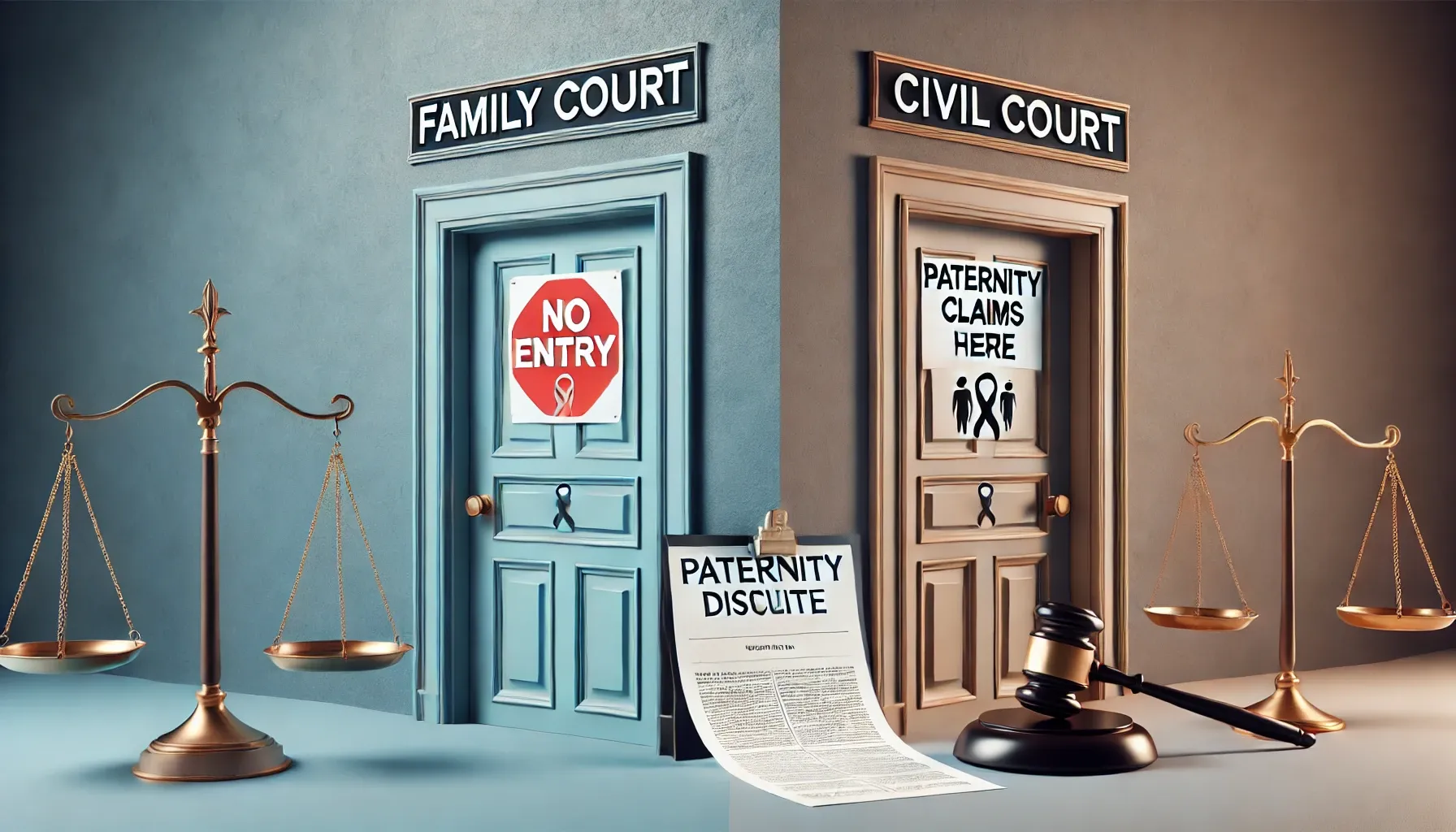The Supreme Court ruled that Family Courts lack jurisdiction to entertain paternity claims arising from extra-marital affairs, clarifying that such disputes must be filed before a Civil Court.

The Supreme Court of India has ruled that Family Courts do not have the jurisdiction to entertain paternity claims arising from extra-marital affairs. The Court held that since Family Courts are meant to adjudicate only matrimonial disputes, any plea regarding paternity outside the bounds of a legally recognized marriage must be filed in a regular civil court.
A Bench comprising Justices Surya Kant and Ujjal Bhuyan delivered this verdict while hearing a case where a respondent, already recognized as the legitimate child of his mother's husband, had sought a paternity test against an individual alleged to have had an extra-marital affair with his mother. The Supreme Court emphasized that such claims cannot be entertained under the jurisdiction of the Family Court, as they do not pertain to disputes arising from a valid marital relationship.
Background of the Case
- The respondent, who was legally recognized as the son of his mother and RK, approached the Family Court, seeking a paternity test against the appellant, alleging that the appellant was his biological father.
- The appellant challenged the maintainability of the claim, arguing that Family Courts cannot entertain paternity claims when no marital relationship exists between the appellant and the respondent’s mother.
- The Family Court, despite earlier findings affirming the respondent’s legitimacy as RK’s son, revived maintenance proceedings under Section 125 of the Code of Criminal Procedure (CrPC) against the appellant.
- The appellant moved the High Court, which upheld the Family Court’s decision, prompting an appeal before the Supreme Court.
Supreme Court’s Observations
- The Supreme Court ruled that Family Courts are established to adjudicate disputes that arise within the realm of marriage, such as divorce, maintenance, and legitimacy issues arising from a valid marital relationship.
- Since the respondent’s mother was married to RK, and their marital relationship was undisputed, the presumption of legitimacy under Section 112 of the Indian Evidence Act applied.
- The Court observed that paternity claims from extra-marital affairs cannot be entertained by a Family Court and should instead be filed before a regular civil court.
- Justice Surya Kant, delivering the judgment, stated:
- “The jurisdiction conferred upon the Family Court is for the settlement of issues arising out of matrimonial causes. A matrimonial cause essentially relates to the rights of marriage between a husband and wife.”
- “In the instant case, there is no claim regarding the marital relationship between the Respondent's mother and Mr. R. Instead, it pertains to an alleged extra-marital relationship between the Appellant and the Respondent's mother. This matter, therefore, cannot be construed to fall within the exclusive jurisdiction of the Family Court and was thus, rightly entertained by the Munsiff Court and subsequently, the Sub-Judge.”
Legal Precedents Cited
- Renubala Moharana v. Mina Mohanty (2004)
- The Court in this case held that Family Courts cannot decide paternity claims unless there is a dispute regarding the marital relationship of the child's mother.
- Aparna Ajinkya Firodia v. Ajinkya Arun Firodia (2024)
- The Supreme Court ruled that paternity claims cannot override the presumption of legitimacy unless the claimant proves that the mother and her legal husband had no access to each other during conception.
- Presumption of Legitimacy Under Section 112 of the Indian Evidence Act
- The Court reiterated that a child born during a valid marriage is presumed to be legitimate, and this presumption can only be rebutted by proving that the legal husband had no access to the wife at the time of conception.
Final Verdict
- The Supreme Court set aside the High Court’s order, ruling in favor of the appellant.
- It emphasized that the Family Court exceeded its jurisdiction in reviving the paternity claim and maintenance proceedings.
- The Bench clarified that paternity claims arising from extra-marital affairs should be filed in civil courts, not Family Courts.
Case Title: Ivan Rathinam versus Milan Joseph
Attachment:





